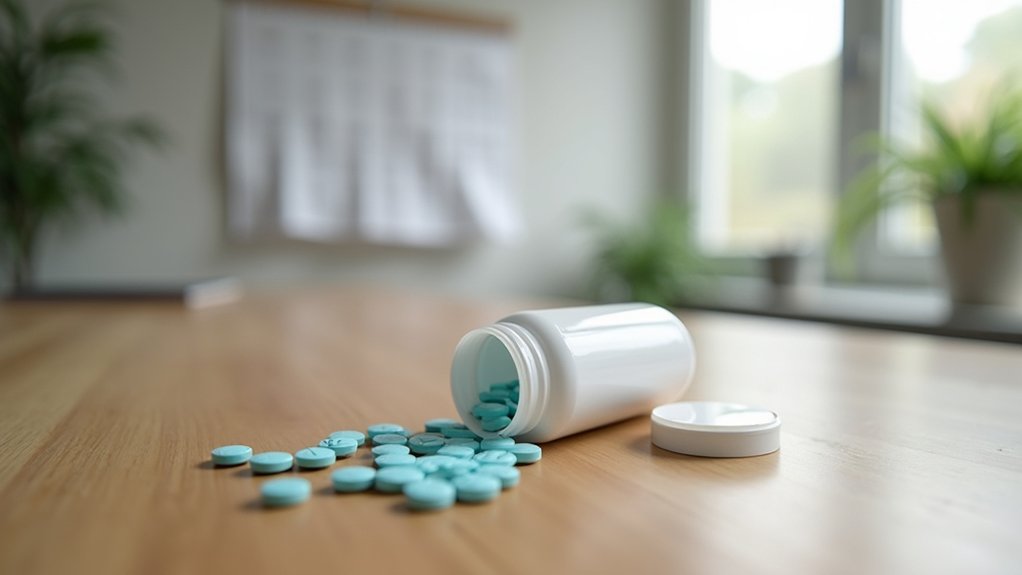What are the 5 Stages of Addiction Recovery?
Addiction recovery is a complex and challenging journey, but it can ultimately lead to a happier and healthier life. The process of recovering from addiction is not an overnight fix, but rather a series of stages that individuals must navigate to achieve lasting change.
Whether you are personally struggling with addiction or supporting someone on their recovery journey, understanding the stages of recovery can be beneficial in promoting long-term sobriety.
Learn how our addiction treatment programs in California can help you or a loved one navigate the stages of recovery. Seeking professional help is the first step in long-term healing.
What Are the Signs of Addiction?
Addiction is a complex disease that affects people from all walks of life. It can be difficult to recognize the signs of addiction, as they often vary from person to person. However, there are some common signs and symptoms that may indicate someone is struggling with addiction.
- Increased Tolerance: One of the early signs of addiction is an increased tolerance for the substance or behavior. This means that the person needs more and more of the substance or activity to achieve the same effect.
- Withdrawal Symptoms: When a person stops using the substance or engaging in the behavior, they may experience withdrawal symptoms such as irritability, anxiety, nausea, insomnia, and sweating.
- Loss of Control: People struggling with addiction often find it difficult to control their use of substances or engage in certain behaviors. They may have unsuccessful attempts at cutting back or quitting altogether.
- Neglecting Responsibilities: Addiction can cause a person to neglect their responsibilities at work, school, or home. They may constantly miss deadlines, skip class or neglect household chores.
- Changes in Behavior: As addiction takes hold, a person’s behavior may change drastically. They may become secretive, isolate themselves from friends and family, lie about their activities or whereabouts, and exhibit mood swings.
- Physical Changes: Substance abuse can lead to physical changes such as weight loss or gain, bloodshot eyes, slurred speech, and poor personal hygiene.
- Financial Problems: Addiction can also lead to financial problems as a person prioritizes obtaining their substance over paying bills and meeting other financial obligations.
- Relationship Issues: Addiction can strain relationships with family members and friends due to lying, stealing money for drugs/activities, and broken promises.
If you notice any of these signs in yourself or a loved one, it is important to seek professional help immediately before the addiction worsens. Recovery is possible at our addiction treatment in California.
What is the Transtheoretical Model?
The Transtheoretical Model is a framework developed by psychologists to understand addiction and guide behavior change. It is based on the premise that individuals go through various stages of recovery when overcoming addiction, and various factors can influence that progress through these stages.
The model consists of five stages:
- Precontemplation
- Contemplation
- Preparation
- Action
- Maintenance
The Transtheoretical Model also recognizes that relapse is common during behavior change and includes a sixth stage called termination. This final stage represents when an individual has successfully maintained their new behavior for an extended period without any risk of relapse. Our addiction therapy services in California can help you maintain your progress in recovery.
The 5 Stages of Recovery
The 5 Stages of Recovery, based on the Transtheoretical Model, is a framework that outlines the stages an individual may go through when making a behavior change. This model was originally developed to help individuals recover from addictive behaviors, but it can also be applied to other types of recovery, such as physical or mental health recovery.

Stage 1: Precontemplation
In this stage, individuals are not yet aware or do not acknowledge that they have a problem. They may not see the need for change and may deny or minimize any negative consequences of their behavior. People in this stage may show resistance to suggestions or advice from others and are not actively considering making any changes.
Stage 2: Contemplation
During this stage, individuals begin to recognize that they have a problem and start to consider the possibility of making a change. They may still feel ambivalent about changing their behavior and may weigh the pros and cons of making a change. People in this stage often seek out information and resources to better understand their problems.
Stage 3: Preparation
Stage 4: Action
In this stage, individuals have decided to change and are preparing themselves for action. They may set specific goals, make plans, and gather resources necessary for change. People in this stage may reach out for support from friends, family members, or professionals.
Stage 5: Maintenance
The maintenance stage involves sustaining the changes made during the action stage over time. Individuals continue to work on maintaining their new behaviors while avoiding relapse into old patterns. This stage requires ongoing commitment and effort but becomes easier with time.
It’s important to note that not everyone linearly goes through these stages, and it’s common for people to go back and forth between stages. Relapse can also occur at any stage, and it’s crucial to have a support system in place to help individuals get back on track.
The 5 Stages of Recovery provide a helpful framework for understanding the process of overcoming addiction and can be used to guide individuals toward lasting change. These stages emphasize the importance of self-awareness, planning, and ongoing effort in the journey toward recovery.
The Importance of Aftercare
Aftercare refers to the ongoing support and maintenance that an individual receives after completing a program or treatment. It is an essential component of the 5 stages of recovery, as it helps individuals solidify their progress and prevent relapse.
One of the primary benefits of our aftercare program is that it provides a supportive network for individuals to lean on during difficult times. This can include regular check-ins with therapists or counselors, attending peer support groups, or engaging in community activities with other individuals in recovery. These connections can provide a sense of belonging and help individuals feel less alone in their journey toward healing.
Aftercare also helps individuals develop healthy coping mechanisms to deal with triggers and stressors that may arise post-treatment. This can include learning relaxation techniques, practicing mindful behaviors, and setting healthy boundaries in relationships. By equipping individuals with these skills, they are better prepared to handle challenges without turning to harmful behaviors.
In addition, aftercare allows for continued monitoring of progress and addressing any potential issues before they escalate. Regular follow-up appointments with mental health professionals can help identify any underlying problems that may hinder an individual’s recovery. Early intervention can prevent relapse and ensure long-term success.
Finally, aftercare reinforces the lessons learned during the stages of recovery and encourages individuals to maintain their commitment to their recovery journey. By remaining engaged in aftercare activities, individuals are reminded of their goals and motivated to continue working towards them.

Treatment Options Available at Immersive Recovery
- Intensive Outpatient Treatment (IOP): At Immersive Recovery, we offer an intensive outpatient treatment program (IOP) that provides comprehensive care and support for individuals struggling with addiction. This option is recommended for those with severe addiction or co-occurring mental health disorders.
- Outpatient Treatment: For those who have less severe addiction or cannot commit to a full-time inpatient program, Immersive Recovery also offers outpatient treatment options. These programs allow individuals to receive treatment while still maintaining their daily responsibilities.
- Medical Detox: At Immersive Recovery, medical detox is an essential part of the treatment process. Our licensed therapists work one-on-one with clients to treat addiction withdrawal symptoms and develop personalized treatment plans.
- Therapy: Our therapy sessions provide a supportive and safe environment for clients to share their experiences, gain insight from others, and develop healthy coping skills. From individual to group therapy, we can help you find the best fit for your recovery needs.
- Medication-Assisted Treatment (MAT): For those struggling with opioid or alcohol addiction, Immersive Recovery offers MAT as part of our comprehensive treatment approach. This may include medications such as methadone, buprenorphine, or naltrexone to help manage withdrawal symptoms and cravings.
- Dual Diagnosis Treatment: Many individuals struggling with addiction also have co-occurring mental health disorders such as depression or anxiety. We offer specialized treatment to address both conditions simultaneously at our dual diagnosis treatment center in California.
- Aftercare Support: Our commitment to our clients does not end after completing our programs. We provide ongoing support through aftercare services such as alumni groups and relapse prevention planning to ensure long-term success in recovery.
Through these comprehensive treatment options at Immersive Recovery in California, individuals can find the support they need to overcome addiction and live a fulfilling life in recovery.
Learn More About the Stages of the Addiction Recovery Process
At Immersive Recovery in California, we understand the struggle of undergoing the stages of recovery. That’s why we offer a comprehensive and personalized approach to recovery that focuses on achieving long-term recovery.
Our team of experienced professionals is dedicated to helping individuals overcome addiction and achieve lasting sobriety. We provide ongoing support through aftercare programs to ensure that our clients have the tools they need to maintain their sobriety after leaving our program.
Don’t let addiction control your life any longer. Find freedom from addiction at Immersive Recovery in California. Contact us today to learn more about the stages of recovery and how we can help you or your loved one start on the path toward a healthier, happier life.





